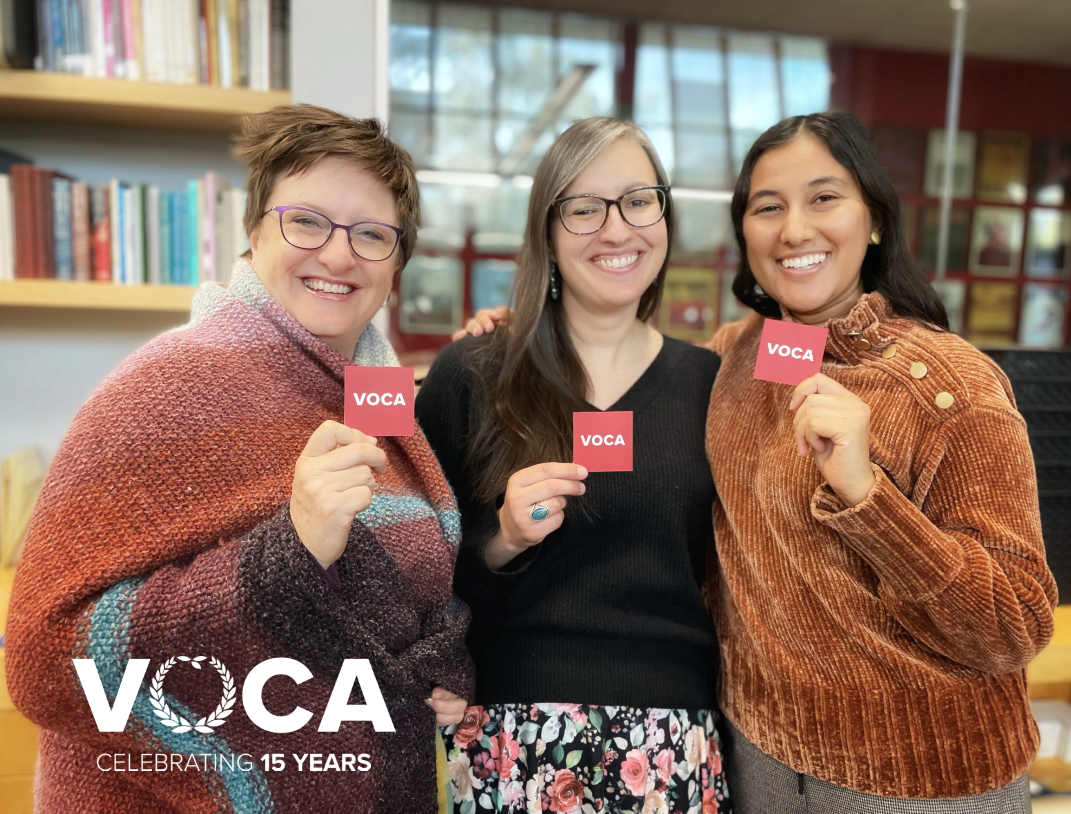
Voca, the Poetry Center's audiovisual archive, turns 15 this year! For this anniversary, we've compiled 15 surprising facts about the archive. Did you know:
- There are at least 25 different languages spoken on Voca, including Japanese, French, Greek, Latin, Spanish, Arabic, Hebrew, Swedish, O'Odham, and Navajo
- The Voca archive houses more than 12,000 individual media files...
- ...comprising more than 6 million words, all of which have been transcribed and added to recordings as captions for easier navigation and access
- The earliest recording available on Voca is one of poet George Bowering from October 1963 (not Robert Creeley from December 1963, as we previously thought!)
- The recordings on Voca are half-and-half audio and video files (which surprised us, since we have only been recording in video since about 2000)
- Voca includes recordings by 5 Nobel Laureates, including Louise Glück and Tomas Tranströmer, both of whom read for the Poetry Center multiple times over the years...
- ...24 U.S. Poets Laureate, including Juan Felipe Herrera, Joy Harjo, Ada Limón, Robert Hass, and Robert Pinsky...
- ...45 Pulitzer Prize winners, including Maxine Kumin, Rita Dove, and Brandon Som...
- ...and 40 MacArthur "genius grant" recipients, including Manuel Muñoz, Jorie Graham, Terrance Hayes, and Ofelia Zepeda
- Voca has an especially rich collection of recordings of Southwestern Indigenous poets reading their work, including Natalie Diaz, Layli Long Soldier, Sherwin Bitsui, and Laura Tohe
- Voca recordings include hundreds of early drafts and unpublished poems in addition to published work; some poems on Voca are available nowhere else
- All recordings appear on Voca by permission of the author; recordings for which we lack this permission are available onsite at the Poetry Center
- The most common tags on Voca are "family," "humor," "prose," "death," "fiction," and "nature"
- Each Voca recording represents the work of at least five people: a videographer, a professional transcriber, and all three Poetry Center Library staff (who generate metadata, perform quality control checks, and upload media and caption files to the Voca site)
- Voca is a custom build; the site's code is written and maintained by specialist web developers in the College of Humanities computing team.
We hope you enjoy using Voca! The current site, with new features like playlists, staff picks, and comprehensive captioning, is the most complete and accessible version of Voca to date. We can't wait to see what the next 15 years bring!
Category:
Features

